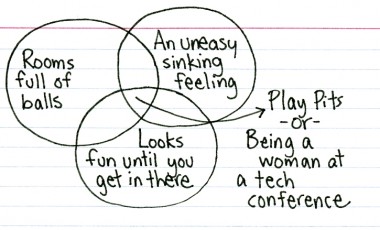At least, that’s what this guy Richard Spencer is claiming that he’s doing, trying to add a little intellectual respectability to a small gang of bigots. From this account of a conference the racists recently had, though, it sounds like the same old crap.
“If you cannot be for your own people, who can you be for?” one young man who gave his name as Helmut Schmidt said as a reason for attending the conference. “The reality is when white people are the minority in this country, it is going to be real bad.”
But really the conference was open to any number of overlapping topics that might attract disaffected white youngsters. Jack Donovan, an anti-feminist writer and “advocate for the resurgence of tribalism and manly virtue,” served up his shtick.
Donovan has argued that feminists are trying to create “gender-neutral utopias” that will make men into “doughy bonobos and chunky Chaz Bonos playing out their endless manic-depressive melodramas in a big bean-flicking circle of sterility, sickness and desperation.”
“Do black people as a group care what happens to white people as a group? Does a Mexican dad with three babies care about whether some white kid from the burbs gets a summer landscaping job? Of course not,” Donovan said during his presentation, adding later, “You cannot play fair with people who don’t care if you get wiped off the map.”
Turn that last sentence around. Why should anyone play fair with white chauvinists who only care about brown people as nannies and gardners?
One message I got, though, was that the facelift seems to involve adding resentment against independent women to the stew of racial hatred that they usually tap into. It’s always been there, but in this story it’s pretty overt: white women must support the race by bearing lots of white babies.
You can find much more about the unsavory Richard Spencer at the SPLC. He’s currently head of the National Policy Institute, a racist think-tank founded by William Regnery, the far right wing publisher who also publishes a great many books by the Discovery Institute authors like Wells, Wiker, Richards, Gonzalez, Weikart, etc. It’s rather ironic that they love to publish books accusing evolution of being a Nazi plot fomenting Hitlerian ideas of eugenics, while at the same time promoting racial ideas that would have been right at home in Hitler’s government.


